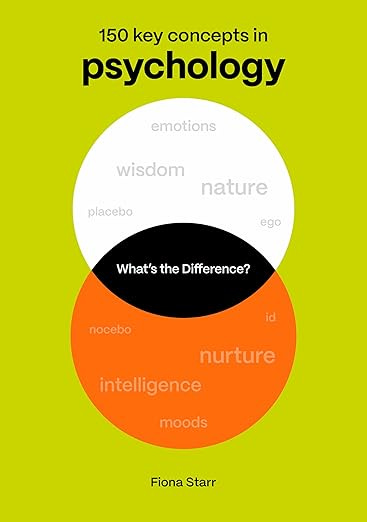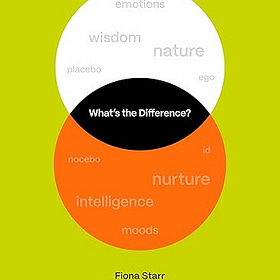
Placebo vs Nocebo effect : Can fake pills heal you? (Maybe, yes 😱 )
Big ideas from the book "150 Key Concepts in Psychology"
Imagine popping a sugar pill and feeling your headache vanish—or suddenly feeling like you’ve been hit by a truck. Sound nuts?
It’s not.
In 150 Key Concepts in Psychology, Fiona Starr unveils the placebo and nocebo effects, where your brain turns belief into biology.
This isn’t some woo-woo nonsense—it’s a peek into how your mind can play doctor or saboteur, and it’s way more powerful than you’d guess. Buckle up, because this is about to get weirdly fascinating.
First, the placebo effect.
Picture yourself in a pristine lab, part of a drug trial. You’re handed a pill—looks real, feels legit—but it’s just sugar. You don’t know that, and soon your pain fades, your pulse steadies, and you’re back in the game.
Starr nods to Henry K. Beecher’s 1955 bombshell, “The Powerful Placebo,” which proved this isn’t fluke: your expectation triggers actual changes—lower blood pressure, hormone shifts, the works. It’s like your brain’s got a secret pharmacy, doling out relief because you believe it will. From migraines to mood swings, this mind trick’s a quiet powerhouse.
Now, the dark twin: the nocebo effect.
Ever ditched that scary side-effects pamphlet from your meds? Good call. Starr explains how expecting trouble—like “This’ll make me sick!”—can make it real. Swallow a fake pill, think it’s trouble, and boom: your heart races, stress hormones flood, and you’re a wreck.
Listen to the audiobook summary of the book 150 Key Concepts in Psychology on BigIdeas.FM (audiobooks done as podcasts)!Researchers clocked this when trial patients griped about sham treatments, all because their minds bought the bad hype. “There’s a clear interplay between the psychological and the physical,” Starr writes, and it’s a stark reminder of how negativity can boomerang.
Let’s paint a picture. Meet Jane, battling chronic back pain. Her doc slips her a “new treatment” (yep, placebo), and she’s moving easier within days—belief doing the heavy lifting. Then there’s Tom, handed the same fake pill but warned of nausea. He’s soon green and groaning, proving the nocebo’s bite. Same nothing-pill, wildly different outcomes, all thanks to their heads. Drug trials obsess over this stuff because it’s that real.
So, what’s the deal?
Your mind’s a wizard, conjuring health or havoc based on what you feed it. It’s why a doc’s bedside manner matters, or why hypochondria can spiral.
Next time you’re handed a pill—or even just a pep talk—consider this: your brain might be the real MVP, quietly rewriting your reality one expectation at a time.
What's the Difference? by Fiona Starr
What’s the difference... is a unique new concept for a multi book programme of popular reference and lifestyle titles.






